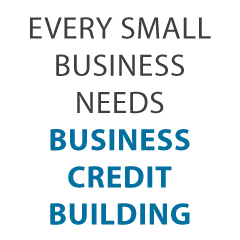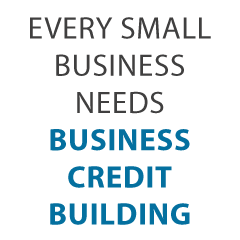
Starting a Business in Iowa
A new business in Iowa is in your reach. Have you been wondering: exactly how do I start a business in Iowa? And more importantly, can I do so no matter what the economic conditions are? Can I start a new business in Iowa during a recession?
A New Business in Iowa: Pros and Cons
Business Insider puts Iowa in its middle ten states when it comes to starting a new business, according to a 2016 article. And this is for the entire nation. The state ties for the lowest rate of new entrepreneurs. There are very few startup firms per currently existing businesses. The cost of living in Iowa is somewhat low. Yet potential employees’ education levels rank in the top 10 among states.
Recent Upswing
In 2018, Fit Small Business named Iowa the seventh best state in which to start a business. Of course, keep in mind that Fit Small Business and Business Insider have differing methodologies.
Why the improvement? A high quality of life and the low costs of starting a business are mainly responsible. The labor market is good – and the cost of office space is the lowest in the nation!
A New Business in Iowa: State Initiatives
Initiatives that benefit an Iowa small business include no personal property tax. There is also no sales and use tax on machinery and equipment purchases. This state also offers a refundable credit for increasing research activities. It is up to 6.5% of qualifying expenditures. Furthermore, Iowa offers reduced or no corporate tax. Also, they have a 50% deductibility for federal taxes from Iowa corporate income. Iowa is one of only five states which offer this deductible.
The Iowa Partnership for Economic Progress (IPEP) works to improve every component of the state’s economic development portfolio. This includes business attraction, retention, innovation, and expansion. In order to help create new, high wage jobs for the people of Iowa, the state is targeting information technology, financial services, and renewable energy. They are also targeting advanced manufacturing, biosciences and food manufacturing as their desirable growth industries.
A New Business in Iowa: Opportunities
Smart business owners can take find new opportunities and advantage of the bigger industries in the area by offering goods or services such as information services. They could also offer computer programming and repair. Another option is trucking for any industry. More options are data work for financial services and the biosciences, among others.
Here is precisely how to start new business in Iowa.
Iowa New Business Secretary of State Requirements
Register a Business Name
Entrepreneurs who are looking to do business in Iowa can reserve their intended business name on the Iowa Secretary of State’s website.
For a corporation, a business owner must decide on a unique corporate name. The name that they choose must not be in use already by another corporation. Before they try to incorporate, they should conduct a thorough search of online records and other databases to see if the name they hope to use is available. A business owner can visit the official website of the Secretary of State to search a database of preexisting Iowa businesses.
If as business owner has decided on an available corporate name that they would like to use, they may want to reserve that name until the time that they are able to incorporate. Download the form to reserve a corporate name at Reserve an Iowa Corporation Name on the Iowa Secretary of State website. The fee is $10.00 to reserve a corporate name and then the name will be reserved for a period of 120 days.
Business Permits and Licenses
Check the Iowa Business License Information Center. It has a searchable database of licenses you may need.
Local Permits and Licenses
There is a list of city clerk websites available.
Start a New Business in Iowa – Business Registration
Registration forms are through the Iowa Secretary of State.
Tax Registration
The “Starting a Business” page on the Iowa Department of Revenue website is the place for information. The State of Iowa Business Tax online registration system can help you finish the job.
Virtual Offices
Alliance offers Iowa virtual business offices in Des Moines only.
For a Cedar Rapids virtual business address, go to Regus.
For other areas of the state, business owners might want to seek out local business owners. Or they might try computer user groups to try to find help in this area.
Other options may be the check with neighboring states when it comes to finding virtual business office space. These are Illinois, Kansas, Minnesota, Nebraska, Oklahoma, South Dakota, and Wisconsin.
Start a New Business in Iowa – Build Business Credit
Small business credit is credit in a company’s name. It doesn’t connect to an entrepreneur’s consumer credit, not even when the owner is a sole proprietor and the sole employee of the small business.
Accordingly, an entrepreneur’s business and individual credit scores can be very different.
The Advantages
Since company credit is distinct from consumer, it helps to secure a business owner’s personal assets, in the event of legal action or business insolvency.
Also, with two distinct credit scores, a business owner can get two separate cards from the same vendor. This effectively doubles buying power.
Another benefit is that even startup businesses can do this. Heading to a bank for a business loan can be a recipe for frustration. But building small business credit, when done right, is a plan for success.
Personal credit scores rely on payments but also additional factors like credit utilization percentages.
But for small business credit, the scores really just depend on whether a small business pays its invoices punctually.
Learn more here and get started toward building business credit attached to your company’s EIN and not your SSN.
The Process
Growing business credit is a process, and it does not occur without effort. A business needs to proactively work to develop business credit.
That being said, it can be done easily and quickly, and it is much faster than building consumer credit scores.
Merchants are a big aspect of this process.
Performing the steps out of order will lead to repetitive denials. Nobody can start at the top with company credit. For example, you can’t start with retail or cash credit from your bank. If you do, you’ll get a denial 100% of the time.
Start a New Business in Iowa – Company Fundability
A company needs to be fundable to loan providers and vendors.
Hence, a small business will need a professional-looking web site and email address. And it needs to have website hosting from a supplier such as GoDaddy.
Additionally, company telephone and fax numbers should have a listing on 411.com.
At the same time, the company phone number should be toll-free (800 exchange or the equivalent).
A business will also need a bank account devoted strictly to it, and it has to have all of the licenses necessary for running.
Learn more here and get started toward building business credit attached to your company’s EIN and not your SSN.
Start a New Business in Iowa – Dealing with the IRS
Visit the IRS web site and obtain an EIN for the small business. They’re totally free. Pick a business entity such as corporation, LLC, etc.
A business can begin as a sole proprietor. But they will probably want to switch to a form of corporation or an LLC.
This is in order to decrease risk. And it will make best use of tax benefits.
A business entity will matter when it involves tax obligations and liability in the event of a lawsuit. A sole proprietorship means the business owner is it when it comes to liability and tax obligations. No one else is responsible.
Sole Proprietors Take Note
If you run a company as a sole proprietor, then at the very least be sure to file for a DBA. This is ‘doing business as’ status.
If you do not, then your personal name is the same as the small business name. Consequently, you can find yourself being directly accountable for all small business financial obligations.
Also, per the IRS, using this structure there is a 1 in 7 probability of an IRS audit. There is a 1 in 50 chance for corporations! Steer clear of confusion and significantly decrease the odds of an Internal Revenue Service audit at the same time.
Starting Off the Business Credit Reporting Process
Begin at the D&B web site and obtain a cost-free D-U-N-S number. A D-U-N-S number is how D&B gets a business in their system, to generate a PAYDEX score. If there is no D-U-N-S number, then there is no record and no PAYDEX score.
Once in D&B’s system, search Equifax and Experian’s sites for the business. You can do this at www.creditsuite.com/reports. If there is a record with them, check it for correctness and completeness. If there are no records with them, go to the next step in the process.
By doing so, Experian and Equifax will have something to report on.
Vendor Credit Tier
First you should establish trade lines that report. This is also referred to as the vendor credit tier. Then you’ll have an established credit profile, and you’ll get a business credit score.
And with an established business credit profile and score you can start to obtain credit in the retail and cash credit tiers.
These types of accounts have the tendency to be for the things bought all the time, like marketing materials, shipping boxes, outdoor work wear, ink and toner, and office furniture.
But first of all, what is trade credit? These trade lines are credit issuers who will give you starter credit when you have none now. Terms are in most cases Net 30, instead of revolving.
Therefore, if you get approval for $1,000 in vendor credit and use all of it, you must pay that money back in a set term, such as within 30 days on a Net 30 account.
Details
Net 30 accounts need to be paid in full within 30 days. 60 accounts have to be paid fully within 60 days. In contrast to with revolving accounts, you have a set time when you have to pay back what you borrowed or the credit you made use of.
To kick off your business credit profile the right way, you ought to get approval for vendor accounts that report to the business credit reporting agencies. When that’s done, you can then make use of the credit.
Then pay back what you used, and the account is on report to Dun & Bradstreet, Experian, or Equifax.
Vendor Credit Tier – It Makes Sense
Not every vendor can help in the same way true starter credit can. These are merchants that will grant an approval with marginal effort. You also want them to be reporting to one or more of the big three CRAs: Dun & Bradstreet, Equifax, and Experian.
You want 5 to 8 of these to move onto the next step, which is the retail credit tier. But you may have to apply more than one time to these vendors. So, this is to demonstrate you are dependable and will pay promptly.
Retail Credit Tier
Once there are 5 to 8 or more vendor trade accounts reporting to at least one of the CRAs, then move onto the retail credit tier. These are businesses like Office Depot and Staples.
Just use your SSN and date of birth on these applications for verification purposes. For credit checks and guarantees, use the company’s EIN on these credit applications. One example is Lowe’s. They report to D&B, Equifax and Business Experian. They want to see a D-U-N-S and a PAYDEX score of 78 or higher.
Fleet Credit Tier
Are there 8 to 10 accounts reporting? Then move to the fleet credit tier. These are businesses like BP and Conoco. Use this credit to purchase fuel, and to repair, and take care of vehicles. Only use your Social Security Number and date of birth on these applications for verification purposes. For credit checks and guarantees, make sure to apply using the business’s EIN.
One such example is Shell. They report to D&B and Business Experian. They want to see a PAYDEX Score of 78 or better and a 411 business telephone listing.
Shell may say they want a specific amount of time in business or revenue. But if you already have adequate vendor accounts, that won’t be necessary. And you can still get an approval.
Learn more here and get started toward building business credit attached to your company’s EIN and not your SSN.
Cash Credit Tier
Have you been responsibly handling the credit you’ve up to this point? Then move onto the cash credit tier. These are businesses like Visa and MasterCard. Only use your Social Security Number and date of birth on these applications for verification purposes. For credit checks and guarantees, use your EIN instead.
One such example is the Fuelman MasterCard. They report to D&B and Equifax Business. They want to see a PAYDEX Score of 78 or better. And they also want you to have 10 trade lines reporting on your D&B report.
Plus, they want to see a $10,000 high credit limit reporting on your D&B report (other account reporting).
In addition, they want you to have an established small business.
These are service providers like Walmart and Dell, and also Home Depot, BP, and Racetrac. These are commonly MasterCard credit cards. If you have 14 trade accounts reporting, then these are in reach.
Start a New Business in Iowa –Monitor Your Business Credit
Know what is happening with your credit. Make certain it is being reported and address any errors ASAP. Get in the habit of taking a look at credit reports and digging into the particulars, and not just the scores.
We can help you monitor business credit at Experian and D&B for 90% less than it would cost you at the CRAs. See: www.creditsuite.com/monitoring.
Update Your Information
Update the details if there are mistakes or the details is incomplete.
Fix Your Business Credit
So, what’s all this monitoring for? It’s to dispute any mistakes in your records. Errors in your credit report(s) can be fixed. But the CRAs normally want you to dispute in a particular way.
Disputes
Disputing credit report errors usually means you send a paper letter with copies of any evidence of payment with it. These are documents like receipts and cancelled checks. Never mail the originals. Always send copies and retain the original copies.
Fixing credit report mistakes also means you specifically itemize any charges you dispute. Make your dispute letter as understandable as possible. Be specific about the problems with your report. Use certified mail so that you will have proof that you sent in your dispute.
Start a New Business in Iowa –A Word about Business Credit Building
Always use credit responsibly! Never borrow beyond what you can pay back. Monitor balances and deadlines for payments. Paying off on schedule and fully will do more to boost business credit scores than virtually anything else.
Establishing business credit pays. Great business credit scores help a business get loans. Your lending institution knows the business can pay its debts. They know the company is for real.
The small business’s EIN links to high scores and lending institutions won’t feel the need to require a personal guarantee.
Business credit is an asset which can help your small business for many years to come.
Learn more here and get started toward opening a new business in Iowa.
Want to start a new business someplace else in America? Then check out our handy guide to starting a business in any state in the country.
The post How to Set Up a New Business in Iowa appeared first on Credit Suite.
The post How to Set Up a New Business in Iowa appeared first on Buy It At A Bargain – Deals And Reviews.







